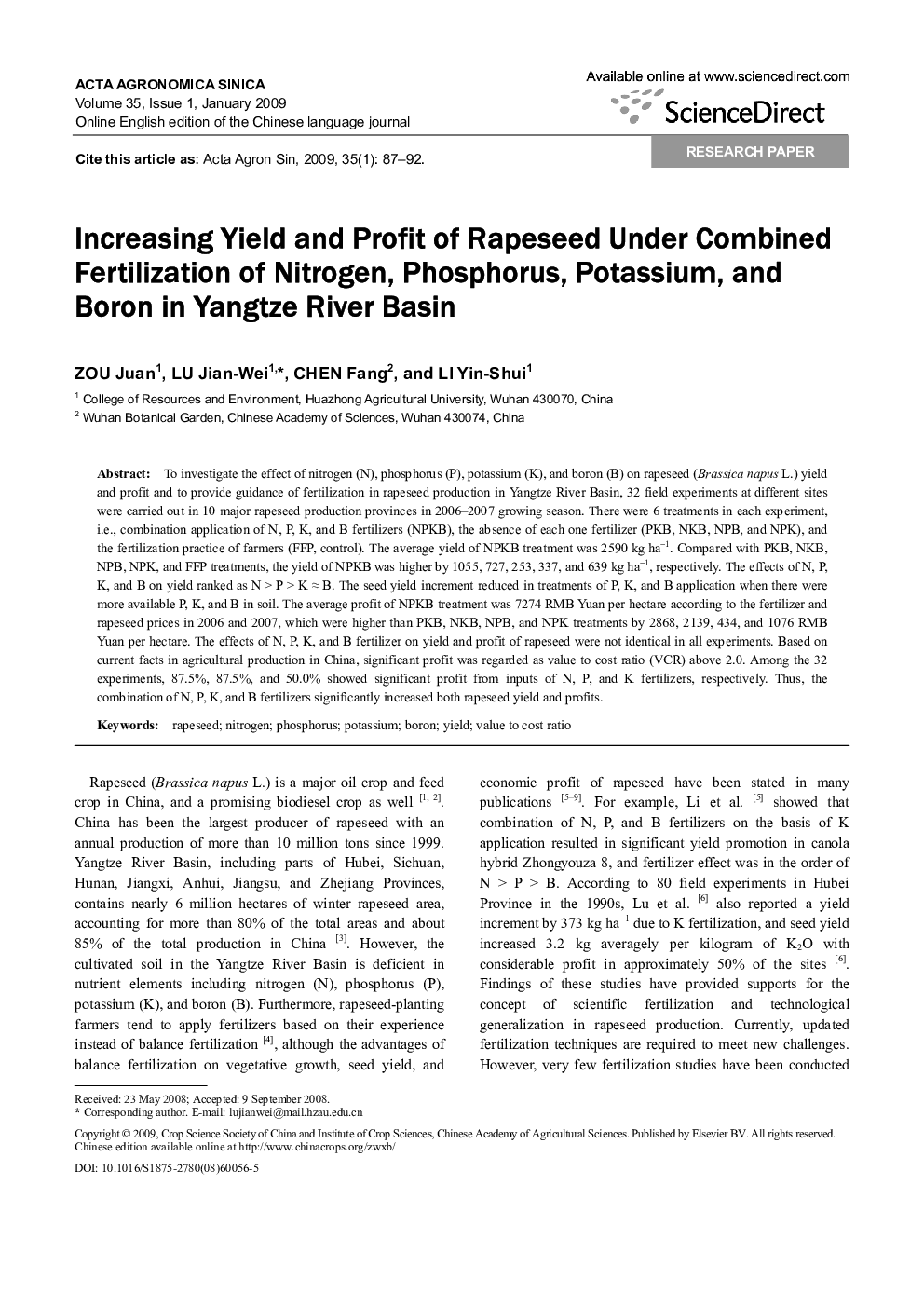| Article ID | Journal | Published Year | Pages | File Type |
|---|---|---|---|---|
| 4503388 | Acta Agronomica Sinica | 2009 | 6 Pages |
To investigate the effect of nitrogen (N), phosphorus (P), potassium (K), and boron (B) on rapeseed (Brassica napus L.) yield and profit and to provide guidance of fertilization in rapeseed production in Yangtze River Basin, 32 field experiments at different sites were carried out in 10 major rapeseed production provinces in 2006–2007 growing season. There were 6 treatments in each experiment, i.e., combination application of N, P, K, and B fertilizers (NPKB), the absence of each one fertilizer (PKB, NKB, NPB, and NPK), and the fertilization practice of farmers (FFP, control). The average yield of NPKB treatment was 2590 kg ha−1. Compared with PKB, NKB, NPB, NPK, and FFP treatments, the yield of NPKB was higher by 1055, 727, 253, 337, and 639 kg ha−1, respectively. The effects of N, P, K, and B on yield ranked as N > P > K ≈ B. The seed yield increment reduced in treatments of P, K, and B application when there were more available P, K, and B in soil. The average profit of NPKB treatment was 7274 RMB Yuan per hectare according to the fertilizer and rapeseed prices in 2006 and 2007, which were higher than PKB, NKB, NPB, and NPK treatments by 2868, 2139, 434, and 1076 RMB Yuan per hectare. The effects of N, P, K, and B fertilizer on yield and profit of rapeseed were not identical in all experiments. Based on current facts in agricultural production in China, significant profit was regarded as value to cost ratio (VCR) above 2.0. Among the 32 experiments, 87.5%, 87.5%, and 50.0% showed significant profit from inputs of N, P, and K fertilizers, respectively. Thus, the combination of N, P, K, and B fertilizers significantly increased both rapeseed yield and profits.
